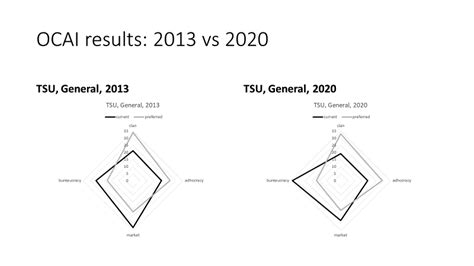Introduction

Texas Tech University (TTU) and Tennessee State University (TSU) are two esteemed institutions of higher education that have played pivotal roles in shaping the academic landscape of their respective regions. Both universities have a rich history, a diverse student body, and a robust academic portfolio. In this comprehensive article, we will delve into the similarities and differences between TTU and TSU, examining their strengths, offerings, and reputation.
Academic Programs and Rankings
TTU:
- Offers over 150 undergraduate and graduate programs across 10 colleges and schools
- Ranked among the top 200 national universities by U.S. News & World Report 2023
- Noted for its strong programs in engineering, business, and agriculture
TSU:
- Offers over 100 undergraduate and graduate programs in 7 colleges and schools
- Ranked among the top 20Historically Black Colleges and Universities (HBCUs) by U.S. News & World Report 2023
- Recognized for its programs in nursing, allied health, and teacher education
Student Body and Campus Life
TTU:
- Enrolls over 40,000 students, including undergraduates, graduates, and professional students
- Diverse student body with representation from 50 states and over 100 countries
- Vibrant campus life with over 500 student organizations and clubs
TSU:
- Enrolls over 9,000 students, predominantly undergraduate
- Predominantly African American student population with a significant international presence
- Offers a strong sense of community and support for students with a focus on mentoring and leadership
Research and Innovation
TTU:
- Designated as a Tier 1 research university by the Carnegie Classification of Institutions of Higher Education
- Conducts over $200 million in annual research expenditures
- Notable research areas include wind energy, water resources, and health sciences
TSU:
- Classified as a Doctoral/Research University (High Research Activity) by the Carnegie Classification of Institutions of Higher Education
- Conducts over $60 million in annual research expenditures
- Focuses on research in health disparities, transportation equity, and food security
Impact on the Community
TTU:
- Contributes over $1.9 billion annually to the Lubbock economy
- Provides educational opportunities for students from all backgrounds
- Partners with local businesses and organizations to foster economic development
TSU:
- Generates over $300 million in economic impact for the Nashville area
- Offers a pipeline of skilled professionals for the region’s healthcare, education, and technology sectors
- Engages in community outreach programs to address social and economic challenges
Table 1: Key Statistics and Rankings
| Metric | TTU | TSU |
|---|---|---|
| Enrollment | 40,000+ | 9,000+ |
| Undergraduate Programs | 150+ | 100+ |
| Graduate Programs | 40+ | 20+ |
| U.S. News & World Report National University Ranking | 200 | 16 |
| U.S. News & World Report HBCU Ranking | N/A | 16 |
| Carnegie Classification | Tier 1 Research University | Doctoral/Research University (High Research Activity) |
Table 2: Academic Strengths
| Discipline | TTU | TSU |
|---|---|---|
| Engineering | Aerospace, Chemical, Electrical | Chemical, Civil, Mechanical |
| Business | Accounting, Finance, Management | Business Administration, Entrepreneurship, Marketing |
| Agriculture | Agricultural Economics, Animal Science, Plant Science | Agriculture, Family and Consumer Sciences, Urban Agriculture |
| Nursing | N/A | Nursing |
| Teacher Education | N/A | Teacher Education |
Table 3: Campus Life and Student Support
| Attribute | TTU | TSU |
|---|---|---|
| Campus Size | 1,840 acres | 240 acres |
| Student Organizations | 500+ | 200+ |
| Residence Halls | 16+ | 10+ |
| Student-to-Faculty Ratio | 19:1 | 14:1 |
Table 4: Research and Innovation
| Area | TTU | TSU |
|---|---|---|
| Annual Research Expenditures | $200 million+ | >$60 million |
| Research Designations | Tier 1 Research University | Doctoral/Research University (High Research Activity) |
| Notable Research Areas | Wind Energy, Water Resources, Health Sciences | Health Disparities, Transportation Equity, Food Security |
Effective Strategies
- Leverage strengths in engineering, business, and agriculture to drive innovation and economic development
- Foster a diverse and inclusive student body to promote cross-cultural learning and prepare students for global challenges
- Utilize research capabilities to address real-world problems and improve community well-being
- Build strong partnerships with local businesses and organizations to create opportunities for students and enhance the community
Tips and Tricks
- For TTU: Explore the university’s Honors College to access challenging coursework, research opportunities, and academic advising.
- For TSU: Take advantage of the university’s Center for Academic Enrichment to receive academic support, tutoring, and mentoring.
- For Both: Utilize the career services offices to connect with potential employers, prepare for job interviews, and develop professional skills.
- For Transfer Students: Contact the admissions office to discuss credit transfer policies and course equivalencies.
- For International Students: Seek support from the university’s International Student Services office to assist with visa processing, cultural adjustment, and academic resources.
How to: Step-by-Step Approach to Choosing the Right University
- Identify your academic goals and interests.
- Research different universities and their programs.
- Compare rankings, faculty research, and student support services.
- Visit campuses and meet with faculty and students.
- Apply to multiple universities to increase your chances of admission.
- Consider financial aid and scholarship opportunities.
- Make your decision based on your research and personal preferences.
Conclusion
TTU and TSU are both exceptional universities with distinct strengths and offerings. TTU excels in research and has a broader academic portfolio, while TSU boasts a strong HBCU tradition and focuses on community engagement. Ultimately, the best choice depends on each student’s individual needs, goals, and preferences. By carefully considering the information presented in this article, prospective students can make an informed decision and embark on a transformative educational journey at either of these esteemed institutions.
